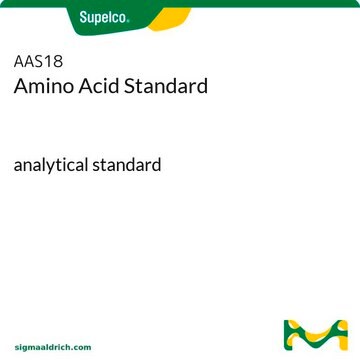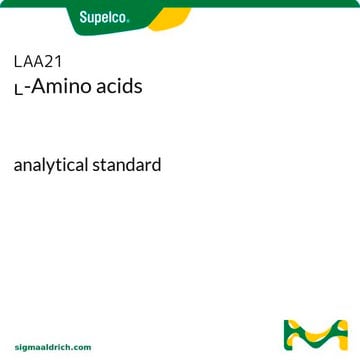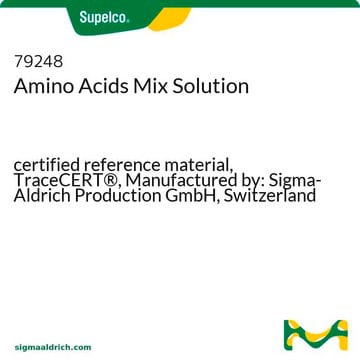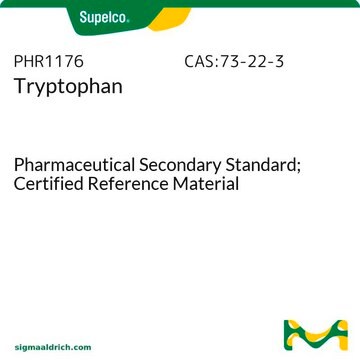N8513
L-Norleucine
suitable for amino acid analysis, BioReagent
Synonym(s):
(S)-(+)-2-Aminohexanoic acid, (S)-2-Aminocaproic acid
About This Item
Recommended Products
product name
L-Norleucine, suitable for amino acid analysis, BioReagent
product line
BioReagent
form
powder or crystals
color
white
mp
>300 °C (lit.)
suitability
suitable for amino acid analysis
application(s)
detection
SMILES string
CCCC[C@H](N)C(O)=O
InChI
1S/C6H13NO2/c1-2-3-4-5(7)6(8)9/h5H,2-4,7H2,1H3,(H,8,9)/t5-/m0/s1
InChI key
LRQKBLKVPFOOQJ-YFKPBYRVSA-N
Looking for similar products? Visit Product Comparison Guide
Application
Other Notes
Signal Word
Warning
Hazard Statements
Precautionary Statements
Hazard Classifications
Skin Sens. 1
Storage Class Code
11 - Combustible Solids
WGK
WGK 3
Flash Point(F)
Not applicable
Flash Point(C)
Not applicable
Personal Protective Equipment
Certificates of Analysis (COA)
Search for Certificates of Analysis (COA) by entering the products Lot/Batch Number. Lot and Batch Numbers can be found on a product’s label following the words ‘Lot’ or ‘Batch’.
Already Own This Product?
Find documentation for the products that you have recently purchased in the Document Library.
Customers Also Viewed
Our team of scientists has experience in all areas of research including Life Science, Material Science, Chemical Synthesis, Chromatography, Analytical and many others.
Contact Technical Service














